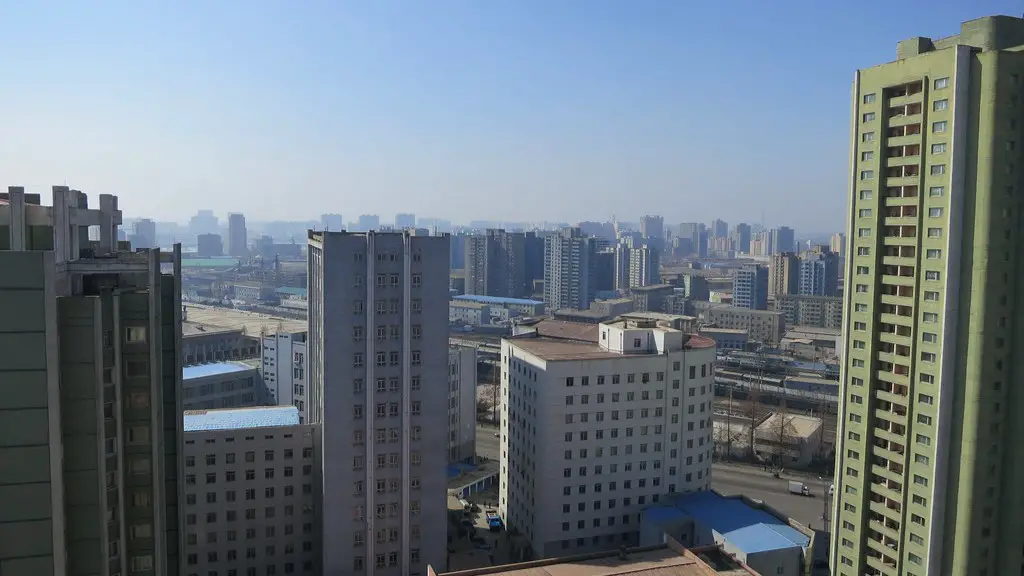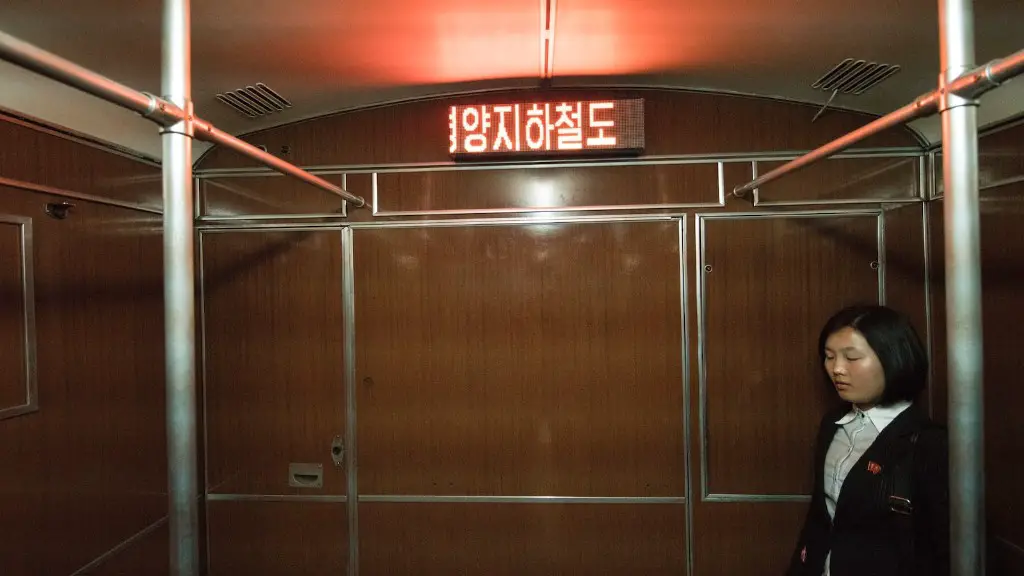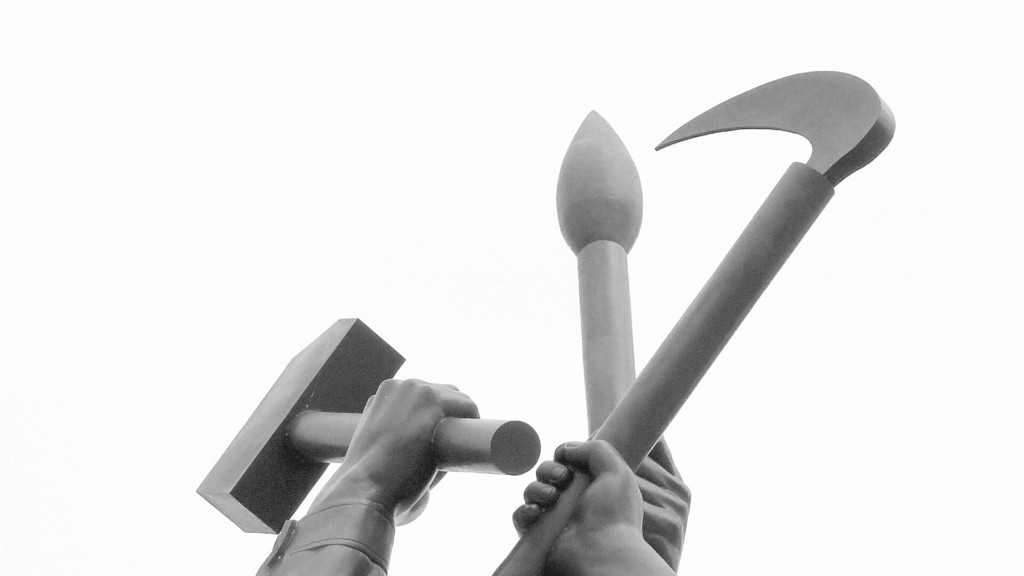The economic system of North Korea is centrally planned and socialist in nature. The country’s workers are employed by state-owned enterprises and collect wages and benefits in the form of government-issued scrip. North Korea’s economic output is generated through a series of five-year plans. The most recent plan, announced in 2013, aims to develop the country’s agriculture and light manufacturing industries.
The economic system of North Korea is based on state ownership of the means of production and a centrally planned economy.
What is the economy of North Korea?
The economy of North Korea is a centrally planned economy, following Juche, where the role of market allocation schemes is limited, although increasing. As of 2022, North Korea continues its basic adherence to a centralized command economy. However, with the increasing openness to foreign investment and trade, the role of market mechanisms is gradually growing.
South Korea has adopted an open market economy, allowing foreign businesses to invest in the country while also encouraging domestic businesses to invest in foreign countries. South Korea is also negotiating with other countries to sign more FTAs in order to further open up the economy. This policy has helped South Korea to become a major player in the global economy, and has made it a desirable destination for foreign investment.
Does North Korea have a money system
The Korean People’s won is the official currency of North Korea. It is subdivided into 100 chon. The won is issued by the Central Bank of the Democratic People’s Republic of Korea, the monetary authority of North Korea.
The major difference between North Korea and South Korea economies is that North Korea’s economy is isolated, closed and tightly controlled, whereas South Korea’s economy is one of the world’s most advanced and productive economies.
The isolation of North Korea’s economy means that the country is cut off from the rest of the world, making it very difficult for businesses to operate there. This lack of openness also makes it difficult to get accurate information about the state of the economy. South Korea, on the other hand, has a highly developed economy that is open to the rest of the world. This openness allows businesses to thrive and provides accurate information about the state of the economy.
The difference in economic development between the two countries is stark. South Korea is a world leader in many industries, while North Korea lags behind. This difference is due to the different economic policies that the two countries have pursued. South Korea has embraced free market capitalism, while North Korea has chosen to centrally planned economy.
The different economic systems of the two countries have resulted in different standards of living. South Korea has a high standard of living, while North Korea’s is much lower. This difference is due to the fact that South Korea’s economy is much more productive than North Korea’s.
Is North Korea’s economy communist?
Since the end of economic aid from the Soviet Union after its dissolution in 1991, North Korea has had to find other ways to sustain its economy. The impractical ideological application of Stalinist policies in North Korea over years of economic slowdown in the 1980s and receding during the 1990s has led the country to nominally uphold Communism, but has replaced it with a more market-based economy.
North Korea’s isolation from much of the rest of the world has had a negative impact on its economy. The country ranks last in the 2023 Index of Economic Freedom, with a score of 29. This is due to the government’s control over the economy, as well as its restrictions on trade and investment. North Korea’s GDP per capita is also among the lowest in the world.
The Democratic People’s Republic of Korea (DPRK) is an independent socialist state that has been in existence since 1992. The DPRK represents the interests of all the Korean people and is not affiliated with any other country. The DPRK has its own unique brand of socialism that is based on the principles of self-reliance and self-sufficiency.
The economy of Japan is a highly developed social market economy, referred to as an East Asian model. It is the third-largest in the world by nominal GDP and the fourth-largest by PPP. The world’s second-largest developed economy, Japan is a member of both the G7 and G20.
The Japanese economy is highly diversified and export-oriented. Manufacturing is the largest sector of the economy, accounting for almost 27% of GDP. Electronics, automobiles, and machine tools are among the country’s most competitive industries.
The service sector is also sizable and growing, accounting for over 73% of GDP. Retail, wholesale, Banking, insurance, real estate, transport, and telecommunications are among the largest service industries.
Tourism is also a significant contributor to the economy, with over 30 million foreign visitors in 2017.
What type of economy is China
Under a socialist market economy, the state still owns the means of production – land, factories, and other key resources – but there is more private ownership and competition than in a planned economy. This system is sometimes also referred to as a “mixed economy.”
The key characteristics of a socialist market economy are:
-The state owns the means of production
-The economy is centrally planned
-Private ownership and competition are encouraged
-Prices are determined by the market
-There is a strong social safety net
1 USD is currently equal to 900 KPW. However, on February 28th, 2023, 1 USD will be equal to 913 KPW.
How much is one dollar in North Korea?
The North Korean won is the official currency of North Korea. It is subdivided into 100 chon. The word “won” literally means “round object” or “circle”, and is cognate to Korean word 원 (圓, Won). The North Korean won is issued by the Central Bank of the Democratic People’s Republic of Korea, based in the capital city, Pyongyang.
To convert North Korean Won to US Dollar, simply multiply the amount of KPW by 0.000111106. For example, 5 KPW would be equal to 0.000555528 USD.
Does North or South Korea have a better economy
Looking at the GDPs of South and North Korea, it’s clear that there is a massive discrepancy between the two. South Korea’s GDP is almost 60 times that of North Korea, which is a testament to the different economic systems and levels of development between the two countries. This difference is even more stark when you consider that South Korea’s population is only around half of North Korea’s. It just goes to show the power of a capitalism and a free market economy.
The North Korean government’s complete control over monetary exchanges is one of the primary reasons why the economy remains stagnant. The lack of competition between businesses results in a lack of innovation and investment, which ultimately leads to poverty. This situation is further compounded by poor governance by the totalitarian regime, which fails to properly allocate resources and manage the economy effectively. As a result, North Korea is one of the poorest countries in the world.
Why is South Korea’s economy so strong?
The South Korean education system is widely regarded as one of the best in the world. It is known for its rigorous academic standards and its competitive entrance examinations.
The South Korean education system is largely responsible for the country’s high-technology boom and economic development. South Korea began to adapt an export-oriented economic strategy to fuel its economy. The country’s highly educated and motivated workforce has been essential to its success in the global marketplace.
The main difference between communism and socialism is that under communism, most property and economic resources are owned and controlled by the state (rather than individual citizens); under socialism, all citizens share equally in economic resources as allocated by a democratically-elected government.
Final Words
The cornerstone of North Korea’s economic system is its state-owned enterprise sector, which produces most of the country’s goods and services. The country also has a highly centralized command economy, in which the government tells businesses what to produce and sets prices.
The North Korean economy is a command economy, which is a system in which the government makes all economic decisions. This means that the government owns all businesses and industries, and controls what is produced and how it is distributed. The government also sets wages and prices.





